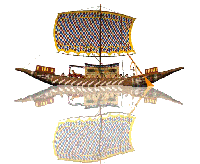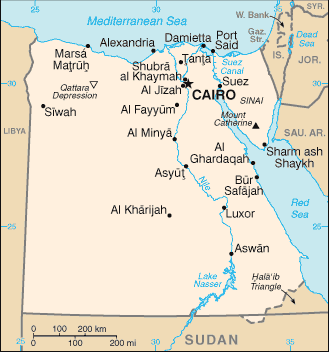History Timeline Predynastic Period (5200 BC to 3100 BC): The first settlers of the Nile
Valley hunt and fish, later switch to farming.
Archaic Period (3100 BC
to 2700 BC): Many kings rule the several districts spread throughout Egypt. A
single leader conquers and unifies all of Egypt under one rule.
Old
Kingdom (2700 BC to 2181 BC): Pyramids become the tomb of choice for
pharaohs. Egypt becomes a mighty nation.
First Intermediate Period
(2181 BC to 2133 BC): The government crumbles and civil war breaks out as
several rival kingdoms fight for control of Egypt.
Middle Kingdom
(2133 BC to 1633): Egypt is reunited and once again becomes rich and powerful.
Egypt expands into Nubia, and art and literature flourish.
Second
Intermediate Period (1633 BC to 1567 BC): Hyksos invaders rule Egypt for
over 65 years. At least the Egyptians learned about bronze, new
weapons, and horse-drawn chariots from them.
New Kingdom (1567 BC to
1085 BC): A group of Egyptian princes drive the Hyksos out of Egypt. Egypt
became a huge empire. Lots of conquering, lots of building, and lots
of trading.
Third Intermediate Period (1085 BC to 525 BC): Economic
troubles and civil wars weaken Egypt. There are up to four kings ruling different
parts of Egypt at the same time.
Late Period (525 BC to 332 BC): The
Persians rule Egypt.
Graeco-Roman
Period (332 BC to AD 641): The time of Greek (Alexander the Great) and Roman rulers and then the
ultimate end of Egyptian culture. |
One
of the reasons why Ancient Egypt was such a successful country, despite
being largely desert, is the Nile river which runs through Egypt from
South, also known as Upper Egypt to North, known as Lower Egypt.
The
Egyptians relied on this river to survive. Once every year, starting in
July, the river would flood, despositing river silt and making the soil
excellent for farming. When the floods subsided in November, the
farmers wouldplant their seeds.
The
Nile no longer floods however. In the 1960s the government built a dam
to store the floodwater for electricity generation and year-round
irrigation of farmland.
|












